What If AI Became the Primary Educator 2025
What If AI Became the Primary Educator 2025
Education has always evolved with technology, from the printing press to the internet. But what if artificial intelligence (AI) became the primary educator, replacing traditional teachers and transforming the way we learn? AI already plays a significant role in personalized learning, automating assessments, and offering instant feedback. But could it fully take over? What would that mean for students, teachers, and the education system?
The Current Role of AI in Education
AI is already enhancing education in many ways:
- Personalized Learning – AI-driven platforms like adaptive learning apps adjust lessons to match a student’s pace and style.
- Instant Feedback – AI-powered grading systems provide real-time corrections on assignments and quizzes.
- Tutoring & Support – AI chatbots and virtual tutors help students with homework and explanations.
- Automated Administrative Work – AI reduces the workload for teachers by handling paperwork and scheduling.
These applications improve learning efficiency, but what happens if AI takes full control?
What Would an AI-Driven Education System Look Like?
If AI became the primary educator, schools and classrooms would look completely different. Instead of a human teacher standing in front of students, AI-driven systems would guide learning in a highly customized and interactive way.
1. Fully Personalized Learning Paths
Every student would have an AI tutor that understands their strengths, weaknesses, and preferred learning methods. Instead of following a fixed curriculum, AI would adjust lessons based on real-time progress, ensuring students learn at their own pace.
2. Interactive & Immersive Lessons
AI-powered virtual reality (VR) and augmented reality (AR) could replace textbooks with 3D interactive experiences. Instead of reading about ancient Rome, students could walk through a digital recreation and interact with historical figures.
3. Instant Grading & Feedback
AI would assess assignments immediately, offering instant explanations for mistakes. This would remove delays in feedback and help students correct misunderstandings on the spot.
4. AI-Powered Creativity & Problem-Solving
AI could guide students through creative projects, helping with brainstorming, coding, writing, and designing. It would suggest new ideas, offer insights, and even act as a collaborator.
5. Always Available Education
Unlike human teachers, AI is available 24/7. Students could learn whenever they want, from anywhere in the world. AI-driven education would remove geographic and time barriers, making quality education accessible to everyone.
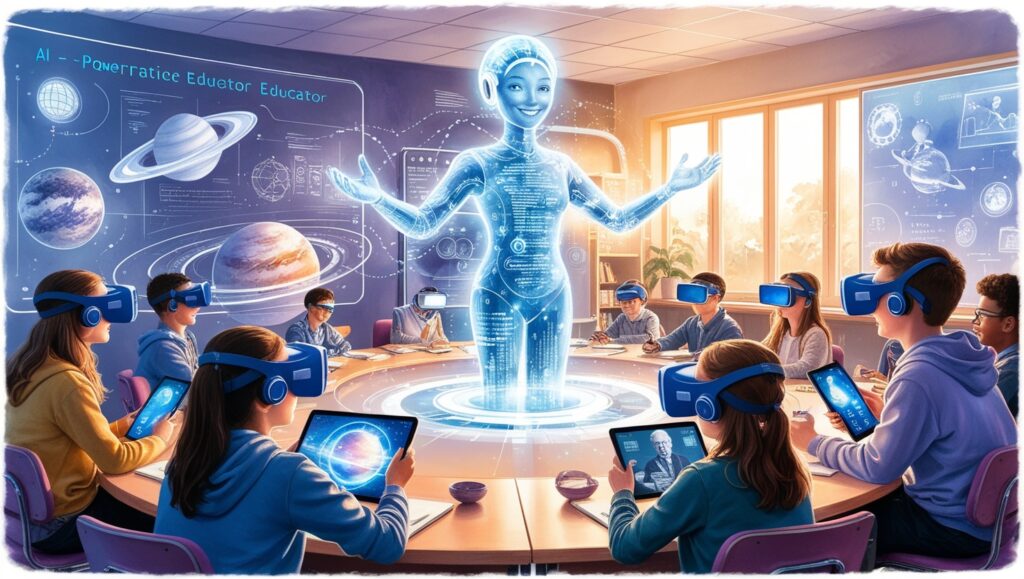
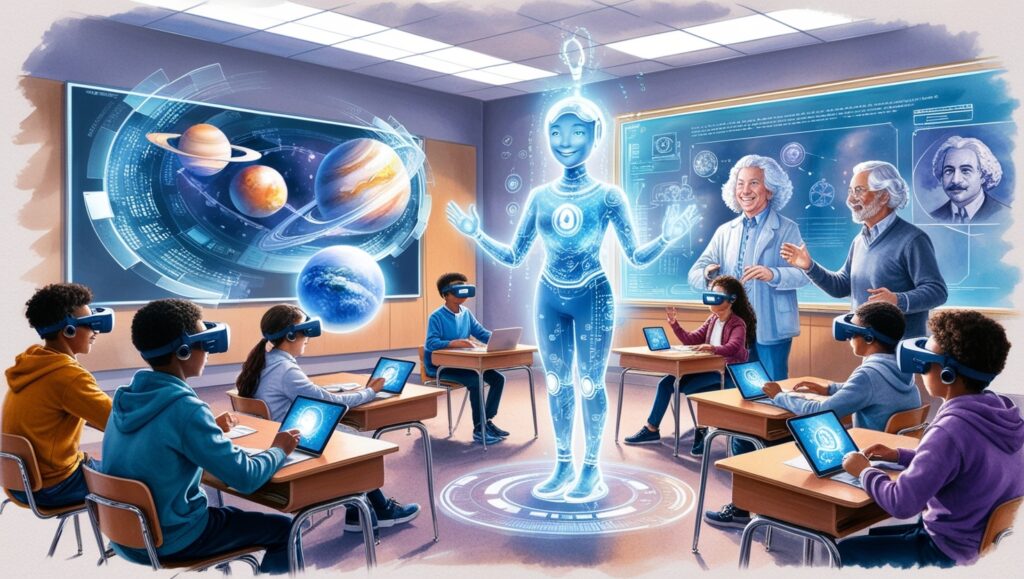
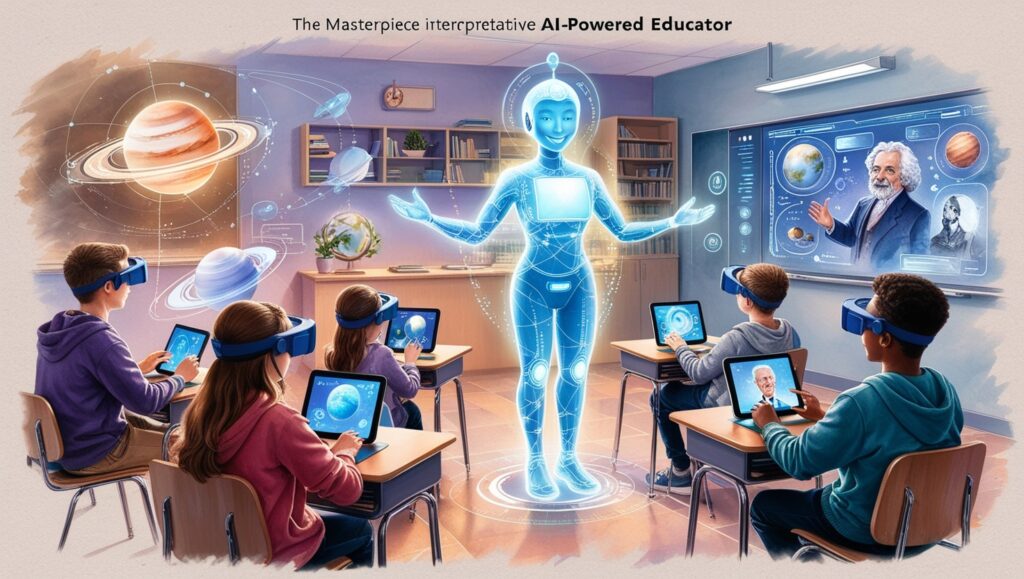
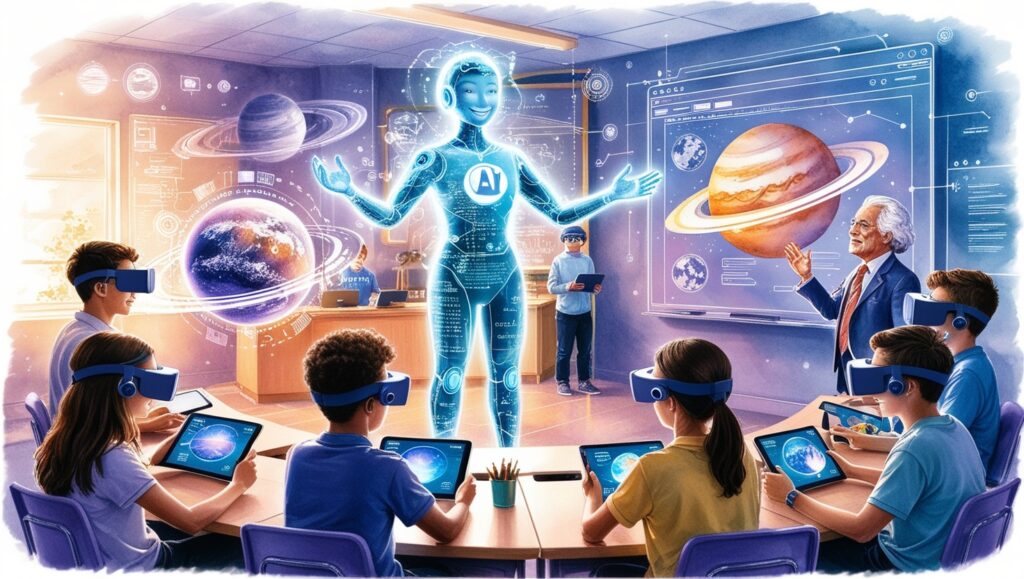
The Benefits of AI as the Primary Educator
If AI took over teaching, it could bring several major benefits:
✅ Equal Access to Education – AI would provide high-quality education to students worldwide, regardless of their location.
✅ Personalized Learning Experience – Every student would get a tailored education that fits their abilities and interests.
✅ Faster & More Efficient Learning – AI’s instant feedback and adaptive learning would speed up the learning process.
✅ Reduced Teacher Workload – AI could handle grading and administrative tasks, freeing human teachers for mentorship and guidance.
The Risks & Challenges of AI-Led Education
Despite its benefits, replacing human teachers with AI comes with serious challenges:
❌ Loss of Human Connection – Students might miss out on emotional support, mentorship, and social interaction, which are crucial for development.
❌ Bias in AI Algorithms – AI is only as good as the data it’s trained on. If biased, it could reinforce stereotypes and misinformation.
❌ Over-Reliance on Technology – If students depend too much on AI, they might lose critical thinking and problem-solving skills.
❌ Job Loss for Educators – If AI replaces human teachers, millions of jobs in education could disappear.
Will AI Fully Replace Teachers?
While AI could transform education, it is unlikely to completely replace human teachers. The best education system will likely be a hybrid model, where AI handles technical tasks while human teachers provide emotional support, creativity, and real-world mentorship.
Imagine an AI tutor helping with personalized lessons, while a human teacher guides discussions, encourages critical thinking, and provides moral support. This combination could create the most effective learning experience.
The Future of AI in Education
By 2030, we may see:
- AI-driven classrooms where students learn through virtual experiences and simulations.
- Emotional AI that can recognize when students are frustrated or bored and adjust lessons accordingly.
- Global AI tutors offering high-quality education to children in remote areas.
- Lifelong AI learning assistants that stay with individuals from childhood to adulthood, helping them upskill over time.
Final Thought
If AI became the primary educator, it would revolutionize learning by making it more personalized, efficient, and accessible. However, education is not just about absorbing information—it’s about human interaction, creativity, and emotional growth. AI can assist in teaching, but it should work alongside human educators rather than replace them. The best education will come from a blend of technology and human guidance, ensuring students develop both knowledge and emotional intelligence.
AI might be the future of education, but human connection will always be irreplaceable.
Read Our Past Blog: How Does Dopamine Influence Motivation 2025
For more information, check this resource.
What If AI Became the Primary Educator 2025 – Everything You Need to Know
Understanding ai in Depth
Related Posts
Related Posts
Related Posts
Related Posts
How Is AI Revolutionizing Renewable Energy?
https://edgythoughts.com/how-is-ai-revolutionizing-renewable-energy/
Why Indoor Farming Is Reshaping Food in 2025
https://edgythoughts.com/why-indoor-farming-is-reshaping-food-in-2025/
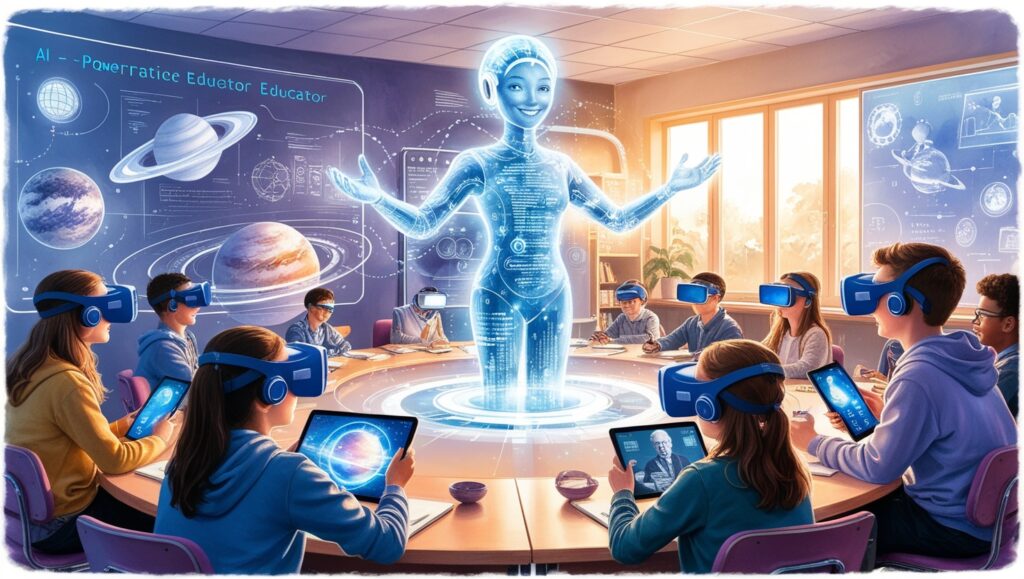




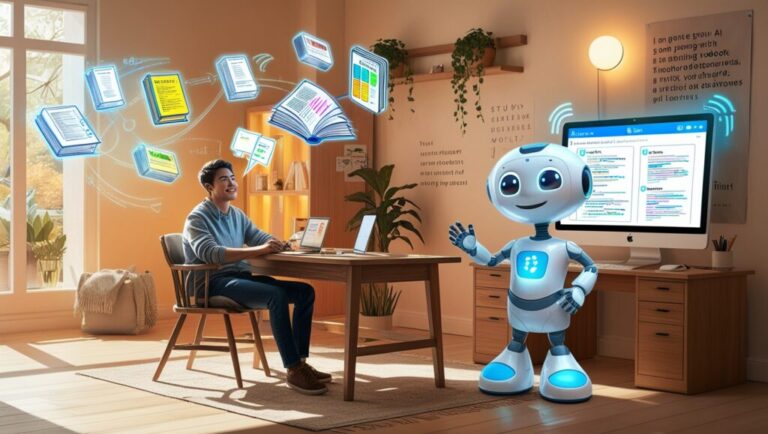

3 Comments